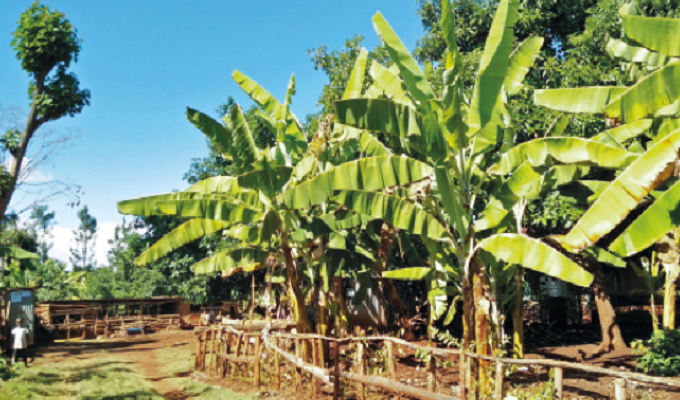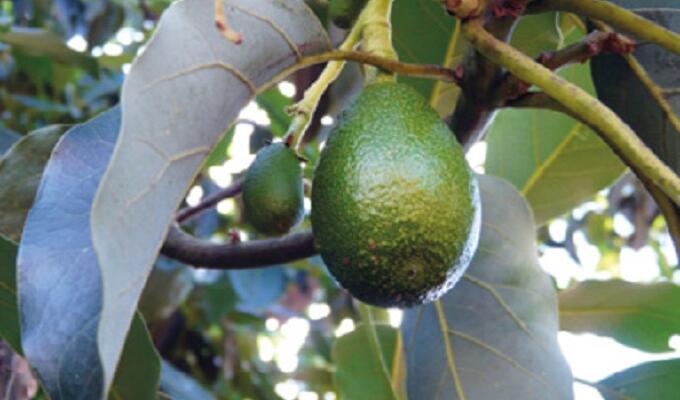

Increased sales for exporters and higher prices for farmers in Kenya’s avocado sector
Trade can be an important driver of higher sales, incomes and job creation for the agriculture sector in developing countries. For farmers, getting a better price for their production translates into more money in their household budget for food, health and education, as well as for investments in higher yields and quality. For local agribusiness companies, increased export sales can mean higher revenues they can in turn reinvest in moving up the value chain through processing or targeting high-value market niches.
But for farmers in Kenya, even those who grow foods as internationally coveted as avocados, capturing the value from the steady growth in global demand is not straightforward.
Kenyan avocado farmers traditionally sell their fruits directly to local brokers. These brokers then sell them on to domestic exporting companies. These firms, many of which are small or medium-sized, in turn sell the avocados to international trading companies operating out of the port city of Mombasa. Only then are the avocados shipped abroad, destined for supermarket shelves.
Farmers sell to brokers on a one-off basis, often at low prices. The general absence of enduring, multi-year relationships with purchasers means that farmers are left with little understanding about market requirements wherever their avocados might end up. Farmers therefore have little incentive to invest in greater quality, nor do they get financial support to do so.
This business model has downsides for SME exporters too. Because the fruit that they purchase from brokers is often of middling quality, they can only sell into lower-value markets or market segments in Asia, Europe and the Middle East. And since these firms do not have a direct link to farmers, they cannot easily invest in improved production methods.
To tap into the most lucrative market niches – such as major European supermarket chains – avocados need to be formally certified for quality. The most prevalent certification for the European market is a private standard called GLOBALG.A.P., which sets out requirements for farming processes and food safety. Complying – and proving compliance – with the requirements of such standards requires farmers and companies to spend time and money. Obtaining GLOBALG.A.P certification, however, opens doors for Kenyan SMEs to build long-lasting relationships with trading firms that sell to higher-end retailers in Europe and offer consistently higher prices.
The responseTo help Kenyan farmers and companies alike reap greater gains from avocado production and exports, ITC first worked with SMEs in the avocado sector to help them understand the advantages of altering their business model: purchasing directly from farmers instead of from brokers would give them greater control over supply quality, in turn paving the way for sales to more lucrative markets.
In addition, ITC helped the SMEs connect to new international buyers and better understand their needs and requirements by organizing business-to-business (B2B) meetings with trading firms and facilitating participation in major international trade fairs, such as Fruit Logistica in Berlin and World of Perishables in Dubai. It also provided the firms with advisory services on marketing and branding.
In parallel, ITC worked with a local agronomist in Muranga County north of Nairobi, one of the country’s biggest avocadoproducing regions, to map out 10 groups of farmers and foster direct links between them and 10 SMEs. These direct links were formalized in 2016 through contractual letters with each farmers group, setting up guaranteed prices for fruit delivered the following season. As part of the arrangements, the SMEs pledged investments in improving production quality and sustainability in return for supply loyalty.
Given the importance of standards in the avocado market – which was underscored to the SMEs by their meetings with European buyers in Berlin – ITC trained 314 farmers and all 10 SMEs on how to meet GLOBALG.A.P requirements.
The resultsIn 2014, when the project started, the Kenyan avocado exporters associated with the project reported exports totalling 6,143 tons. This figure reached 9,334 tons the following year and 12,141 tons in 2016 , representing a 98% increase over the two-year period. Thanks to the new business connections with international trading firms facilitated by the project, SMEs reported 90 new orders during that time, mainly from traders selling into the European market.
Higher sales have meant greater job creation at the companies as they hired 49 permanent and 508 casual workers in 2016, a 128% increase from the year before.
Meanwhile, for the farmers, cutting brokers out of the process has already translated into higher and more predictable prices for their avocados. As per the contracts signed with the SME exporters in 2016, the farmers will, in the upcoming growing season, be paid prices three times higher than what they used to receive from their one-off sales to brokers. Some of this price premium will go towards harvesting and collecting the fruit, a task that used to be done by brokers. The farmers groups have already hired 102 new permanent and 187 casual workers to take on these new responsibilities.
In response to higher revenues and growing customer demand, some of the Kenyan exporting companies have invested in expanding and upgrading their packing facilities, adding cold rooms, grading and cleaning machines and pack houses to cope with the business growth. They have also invested in the farmers groups, helping them build sheds, storage and other physical infrastructures that will help improve quality and meet GLOBALG.A.P requirements.
ITC’s GLOBALG.A.P training for farmers groups and SMEs has progressed well: production processes have been brought into line with the certification’s requirements. The project supported audits for the farmers groups in late 2016 and early 2017 and the 10 groups expect to receive formal certification in time for the 2017 growing season.
The futureAll 10 exporting companies are planning to scale up the approach, investing in additional farmers groups and leveraging certification to expand their position in European market.
Similar work by ITC in 2016 led to 35% growth in international sales volumes for eight Senegalese mango exporters. ITC will continue to build upon this work by facilitating the participation of fruit and vegetable producers from countries such as Ukraine at top industry trade fairs in the Middle East and Europe.



